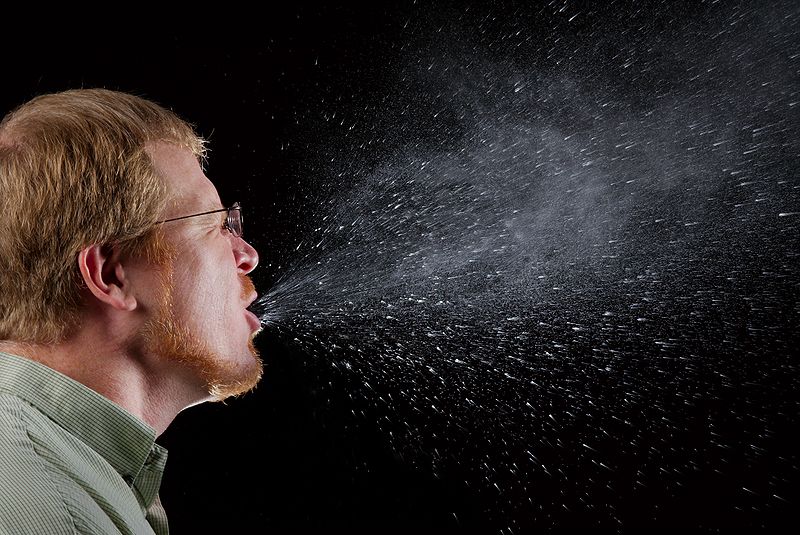By asking if you’re wine intolerant, I’m not asking whether you’re one of those folk who can’t stand walking into a wine shop, or watching your host spend minutes perusing the wine list at dinner, or listening to (so-called) wine-snobs describe the contents of their glasses in detail. You probably wouldn’t be reading Palate Press if you were one of those people. Besides, I’m much more interested in whether or not wine-drinking gives you allergy symptoms. I’m talking about wine intolerance the way we talk about gluten intolerance or lactose intolerance, and I’m talking about it because of a German study released this month.
You see, a group of epidemiologists from Mainz, Germany, published a report in the journal Deutsches Ärzteblatt International describing the findings of a survey they conducted about “wine intolerance.” For the record, an “allergy,” strictly speaking, is an immunologically-mediated reaction diagnosed by a physician; “intolerance” is used to describe allergy-like symptoms that people notice themselves without bothering with the physician diagnosis part. The German survey randomly selected adults living in Mainz and asked them, first, about their drinking habits and, second, whether they’ve experienced any of twelve different classically allergic symptoms after drinking wine.
At first glance the study’s results are a bit shocking. 7.2% of all survey respondents—8.9% of women and 5.2% of men—had wine intolerance by the study’s criteria of either answering “yes” to the question, “Do you have an intolerance to wine?” or by reporting two or more allergic symptoms. The most common symptoms were flushed skin, itching, and drippy nose or congestion.
Before you start worrying that 5-9% of the population can’t or shouldn’t drink wine, I’m happy to say that there are all sorts of problems with this study. Starting at the top, only 27% of the surveys the epidemiologists sent out were returned. That’s not a bad response rate for a survey, but it makes the possibility of bias very real. After all, wouldn’t you be more likely to return a survey obviously about wine intolerance if you yourself thought you were wine intolerant? Even more importantly, the survey relied completely on people self-reporting their own symptoms. Think about the last time you filled out one of those patient history forms in the doctor’s office. “Have you ever experienced palpitations? Night sweats? Headache? Dizziness? Ringing in your ears?” Hmmm … have I experienced palpitations? Well, now that you mention it, maybe I have a few times, last month when I was stressed out…yes, I’m sure that I must have. The power of suggestion can be fatal when a survey assumes that people are always accurate in describing themselves. From what I can tell, too, the study counted all “yes” responses to symptom questions regardless of whether someone reported that they experienced the symptom “always” or only “once” or “seldom” after drinking wine.
Finally—and not to be cynical here, but really—some of the “intolerance” symptoms sound an awful lot like a solid buzz. Flushed skin? Dizziness? Rushing pulse? Stomach cramps? Vomiting? If you’ve had a few too many, those “symptoms” happen to everyone. At least they left out headache for being too “non-specific.”
For the record, this isn’t the first time that researchers have investigated some kind of wine allergy. Biogenic amines reign as the most popular explanation for a variety of wine-related allergy symptoms (headache included)—biogenic amines can be found to some extent in most fermented foods and are known to be toxic in high quantities or to susceptible individuals—though the current evidence in wine, technically, remains inconclusive. (The note of skepticism is because the evidence that I’m sensitive to biogenic amines in wine seems pretty darn conclusive to me.) Some concern has been raised over the possibility that wines clarified with gluten or aged in barrels sealed with gluten paste could contain enough residual gluten to trouble people with Celiac disease; though everyone agrees that the quantities involved are minute and the chances slim, the possibility technically exists. The same situation might exist for wines fined with casein (milk protein), egg white, or isinglass (from fish) and folks with severe milk, egg, or fish allergies. The most interesting thing said on the subject of late, I think, is a Spanish study from last year that found an immune reaction to wine-derived proteins in about half of the heavy wine drinkers they tested. Since those heavy drinkers didn’t have wine-related allergy symptoms no one’s quite sure how this is relevant, but it’s definitely interesting.
Wine intolerance and veritable wine allergy are certainly real. We seem to have the capability to be intolerant to virtually anything—a friend of mine can’t eat kiwi, citrus, mangos, or cinnamon in addition to egg, dairy, wheat, rice, and corn—so wine should be no different. We should learn more about it. I would love to see a study that doses people with red and white wine in a controlled setting and observes them for reactions afterward; heck, I’d love to participate in that study. The results would be interesting to the wine industry, but they would almost certainly help us begin deciphering why wine is troublesome to some people. It might even yield an answer to the perennial wine headache question. Unfortunately, this isn’t that study.
[author] [author_image timthumb=’on’]http://palatepress.com/wp-content/uploads/2010/07/yoga-headshot-2010-thumb.jpg[/author_image] [author_info]Erika Szymanski was blessed with parents who taught her that wine was part of a good meal, who believed that well-behaved children belonged in tasting rooms with their parents, and who had way too many books. Averting a mid-life crisis in advance, she recently returned to her native Pacific Northwest to study for a PhD in microbial enology at Washington State University. Her goal, apart from someday having goats, is melding a winery job to research on how to improve the success rate of spontaneous ferments. When tending her Brettanomyces leaves enough time, her blog Wine-o-scope keeps notes on why being a wine geek is fun.[/author_info] [/author]



